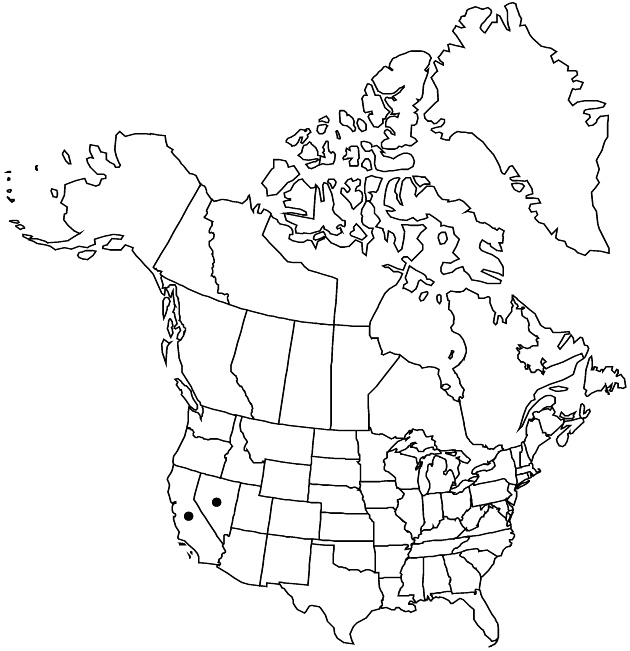Hulsea vestita subsp. inyoensis
Aliso 7: 413. 1972.
Basionym: Hulsea californica var. inyoensis D. D. Keck Aliso 4: 101. 1958
Synonyms: Hulsea inyoensis (D. D. Keck) Munz
Revision as of 19:32, 16 December 2019 by FNA>Volume Importer
Plants 30–70 cm. Leaves: proximal blades 5–9 cm, margins dentate to lobed, faces densely lanate to woolly; cauline leaves (on proximal 1/2 of stems) lanceolate. Heads 1(–2). Involucres obconic to hemispheric, 10–20 mm diam. Phyllaries obovate to oblong-lanceolate, 10–12 mm, apices acuminate. Ray florets 18–32; laminae usually yellow, rarely red-tinged, 12–18 mm. Disc corollas yellow. Cypselae 6–8 mm; pappus scales subequal, 1–2 mm. 2n = 38.
Phenology: Flowering late spring–summer.
Habitat: Rocky slopes, talus, and flats, desert shrublands and conifer woodlands, on volcanic or metamorphic substrates
Elevation: 1700–3000 m
Discussion
Of conservation concern.
Subspecies inyoensis grows in the desert mountains of Inyo County and on the eastern slope of the Sierra Nevada of Mono County, California, and in Nye County, Nevada.
Selected References
None.
Lower Taxa
None.
